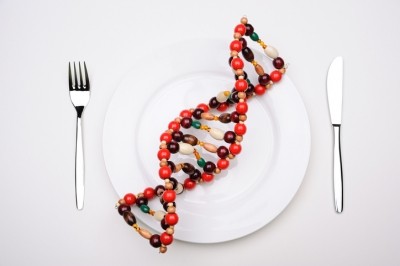Self-diagnosing dietary problems puts consumers at risk of nutritional deficiencies, UK dieticians warn

The British Dietetic Association is urging people to seek professional medical support before self-diagnosing potentially serious conditions and cutting out major food groups.
In a survey by YouGov and the BDA over 2,000 people in Britain were asked what they have self-diagnosed when it comes to issues relating to food and nutrition.
Nearly half (49.5%) confirmed they or a family member believe they have had a condition relating to what they eat, without having any investigation or advice from a healthcare professional (such as a GP or dietitian).
The most common self-diagnosed condition is Irritable Bowel Syndrome (IBS), with 20.2% saying they or a family member suffer from it. This is followed by a vitamin or mineral deficiency (15.9%), a food allergy - such as shellfish or eggs (9.9%) and an intolerance to lactose (9.6%).
Over half (51.2%) of all of those surveyed said that when looking to self-diagnose a condition they get their dietary and nutritional advice from an internet search engine.
The BDA said it feared the public are going on to treat potentially serious medical conditions themselves by only relying on generalised information and not looking at reliable websites from the likes of the NHS and those from registered dietitians.
By cutting out important food groups without suitable alternatives and not getting what sometimes might be the critical care they need, people are potentially putting themselves and their family members at risk, the dieticians cautioned.
“Seeking advice purely online can be risky,” said Duane Mellor, Registered Dietitian and Senior Lecturer at Aston Medical School. “Search engines may offer you a range of supplements and products that you probably won’t need. They may also offer up links to advice that is not scientifically correct. It is best to look at verified health websites for accurate and evidence informed health information.
“It can be tempting to seek out the first website when you are struggling with a health condition and symptoms you feel are linked to something you have eaten. But it is always wise to seek qualified health professionals to first diagnose it, and then a dietitian to get the scientifically accurate dietary advice, which will be tailored to your needs and likes.”
Parents in particular should get professional advice before changing their child’s diet, the BDA added. Cutting out major food groups can deprive a child of essential calories and nutrients, crucial for growth and development.
Bahee Van de Bor, Specialist Paediatric Dietitian and BDA Spokesperson said: “The most common thing I get told is, "I think my child is gluten intolerant" because he/she has a sore tummy after eating regular bread or pasta. Whilst parents might not be too far off from the culprit, it's really important that they don't cut out gluten before consulting with a healthcare professional.
“Instead, work with your child's doctor and paediatric dietitian, who can support you to identify the true root cause of the symptoms, as it might be different from what it initially appears to be. Cutting out gluten or wheat without medical guidance won't guarantee desired results and it can unfortunately lead to anxiety and disruption around eating for both you and your child.
“Without suitable substitutes you can potentially deprive your child of essential calories and nutrients like fibre, calcium, iodine, and B vitamins, which are crucial for their normal growth and development too. A dietitian can provide proper guidance on safely implementing elimination diets and reintroducing foods, ensuring your child's diet remains balanced and supportive of their growth, while effectively managing their symptoms.”
Elimination diets can be a risk in adulthood too, leading to potentially more health problems
Duane added: “Even with medically diagnosed IBS it is essential to seek advice from a dietitian and not just try an exclusion diet yourself, as if it is not properly planned and supported it can put you at risk of nutritional deficiencies.”
IBS can only be properly diagnosed by a healthcare professional when other conditions, including things like bowel cancer or coeliac disease have been excluded.
Dietitians also recommend not relying on at-home allergy/ intolerance tests, involving sending off hair samples or filling in online questionnaires, to diagnose issues.
Sian Porter, Consultant Dietitian and spokesperson for the BDA said: “Dietitians understand that people want to do something to help themselves, or people they care for, and respect this. Yet it’s frustrating to know people have wasted their time and money and risked their health being given inappropriate, conflicting or one-size-fits-all information by someone unqualified, or been sold something unnecessary or unsuitable.”
Kirsten added, “There are many alternative tests available online, which can cost up to around £600, such as IGG (Immunoglobulin) tests. Many people trying to self-manage their symptoms will waste money on these tests and end up on a restricted diet, which may go on to cause nutritional deficiencies.”
One reason for self-diagnosis are misconceptions about what a dietitian is and does. Porter said: “We are not the diet police and we’re not here to judge people.”
The BDA advises anyone with concerns relating to food and nutrition to ask a GP for a referral to see a dietitian.
If you are a parent and have an immediate concern about something your child has eaten, always seek medical assistance as soon as possible.

























